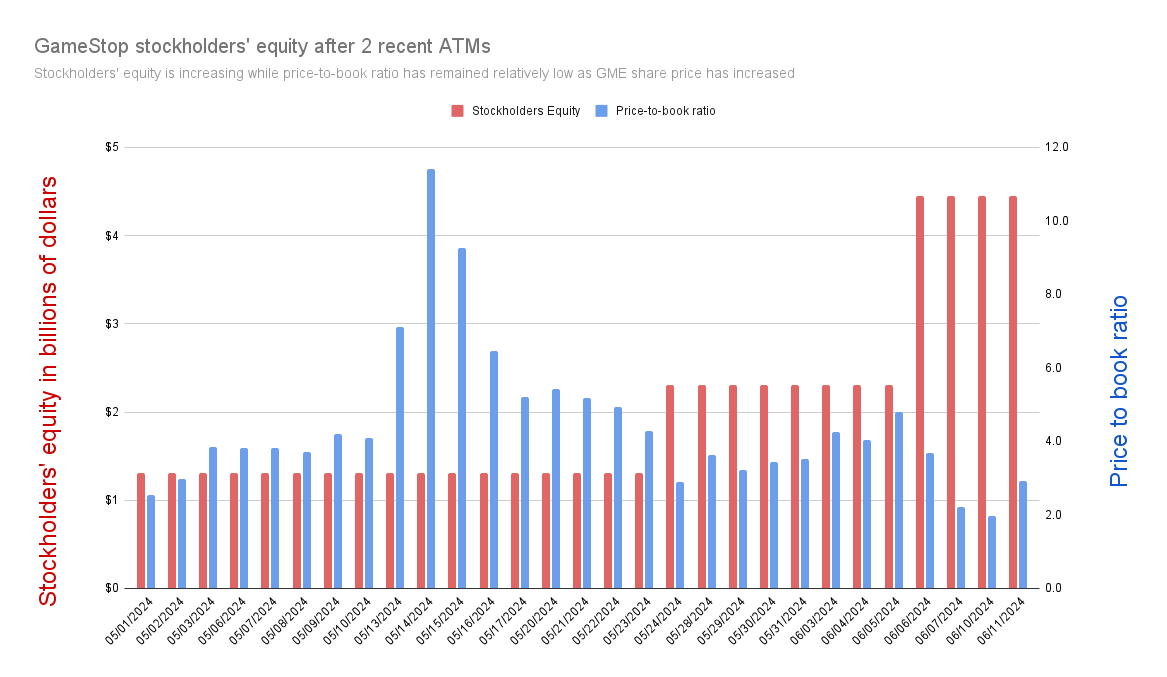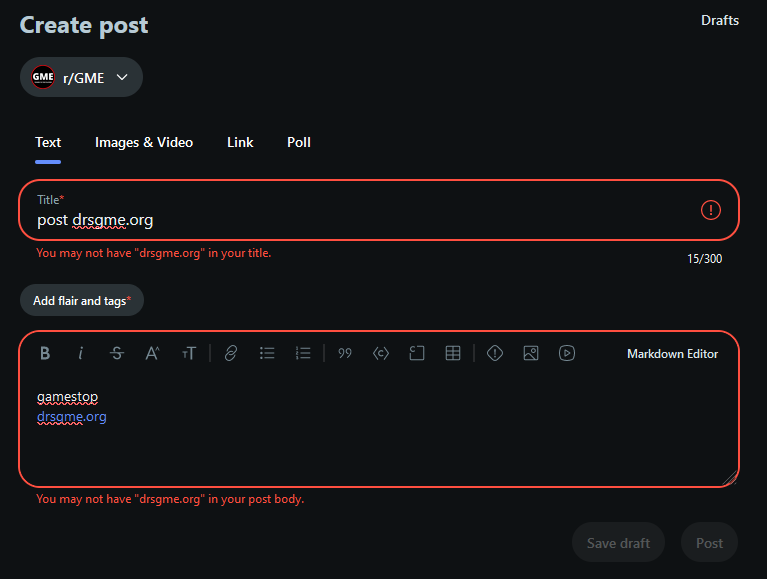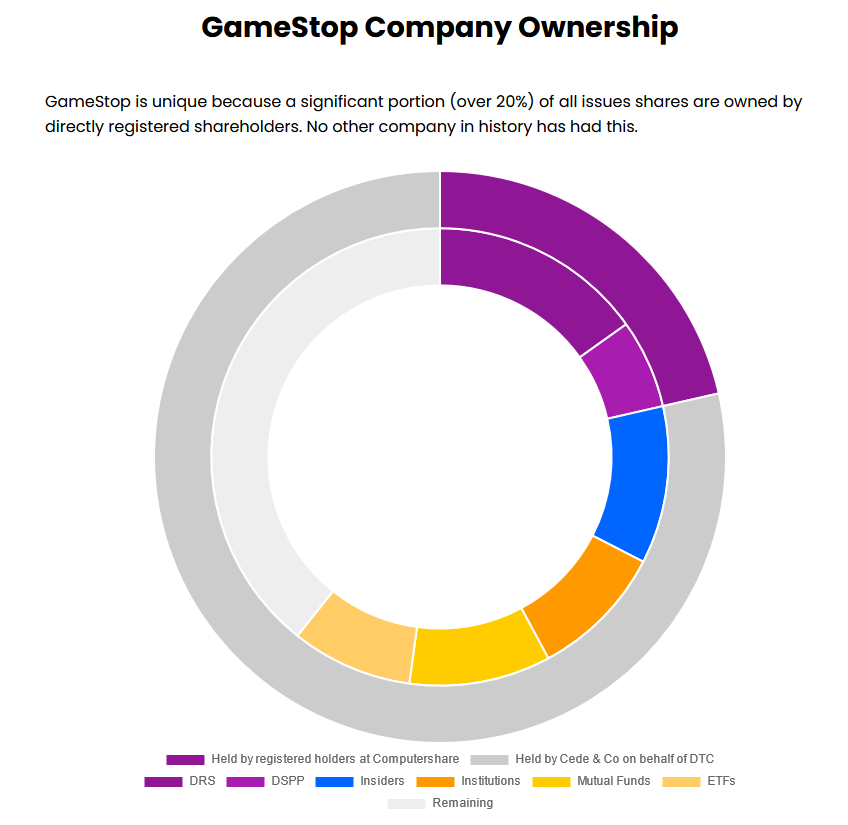it's area.
jersan
great comment!
i tend to agree. i think the fediverse is probably the best model moving forward. it is a challenging problem!
For sure.
with respect to bots, as of this time I don't think it's a problem that can be fully solved, although I do think over a long enough timeline the fediverse is probably the best suited to handle that problem.
I wanted to see a visualization of the relative size comparison, so I used the data that was available on Wikipedia, but this data is approximate at best.
for Karl!
cult member checking in.
These are some great questions that I don't necessarily know the answer to.
I imagine a discussion platform kind of like Reddit / Lemmy, but where moderators are all democratically elected. This would ensure that the community always has the power to remove moderators that aren't serving the interests of the community. In terms of how changes are made, I imagine an environment that combines the best features of Github and Wikipedia, in terms of how changes are made and decided upon and applied for everyone. That there would be standard processes in place for making suggestions and changes, but that the ultimate power rests in the hands of the community participants.
You aren't wrong, trust is obviously very important.
What I am trying to describe is the emergence of an alternative system that people could choose to use based on its own merit, similar to how bitcoin has emerged. While many people still don't trust an idea like bitcoin, already many millions of people do trust it, and the aggregate value of all bitcoin is currently something like half a trillion USD because of this, because of the network effect, because many people do give value to it. As the years go on, as bitcoin continues to fulfill its basic promise of being trustworthy, of functioning as intended, more people will continue to trust it and use it because, while flawed, it promises a degree of inherent trust and functionality that is superior to the incumbent alternative fiat currencies that continue to lose more and more relative value every year due to irresponsibility and corruption of the central banks.
In this sense, a decentralized digital identity network would simply be a more functionally decentralized social network. The topic here is trust, and here we are in the fediverse because centralized for-profit social media companies are not preferred by people here, because of trust and other reasons. As the years go on, the experience of for-profit social media companies will have to compete with the experience of fediverse social media, and if fediverse social media is better, it will eventually emerge as a preferred viable alternative, and maybe even the predominant form of social media. People can choose to use it or not, but because of the network effect, as more people do use it, it increases its inherent value, which causes more people to trust it and use it, which continues to increase the inherent value, etc., until some thresholds are reached.
This would be true also of a hypothetical decentralized identity network. People could choose to use it or not, based on its merits. Many people would choose not to use it because they don't trust it. But, as it would continue to grow and evolve and improve, like bitcoin, or like the fediverse, a larger number of people would use it and trust it despite it being relatively niche, it would continue to demonstrate itself as a viable alternative. In such a scenario of emerging naturally by competing with the incumbent systems, it is not inconceivable that such a system could eventually surpass a threshold and become the predominant social network and identity system in the world, that also provides effective functionality of things like voting on issues.
The way I see it, people are able to be influenced, particularly by the power of such forces as group-think and tribalism. For example, consider the Asch conformity experiments. For the majority of people, when they see what "the group" thinks, this has an outstanding impact on their own opinion. This is how the ultra wealthy use culture wars to divide and distract the electorate, by fabricating and propagating narratives in mainstream media and on social media that confirms the political and tribalistic biases that we have that tells us we are right and our political opponents are wrong. They have us fighting culture wars so that we don't unite and engage them in the class war.
Propaganda exists because it is an effective way of exerting mind control over millions of people. Current forms of for-profit social media are incentivized to have a platform that is maximally engaging, (addicting), because the more time that people spend on the platforms means more exposure to advertisements means more revenue for the for-profit company. Adding to this, rage and anger and hatred are emotions that gets the adrenaline flowing, and this is an addictive loop that Fox news figured out many years ago. Before social media, day after day, night after night you tell your audience that they should be angry and afraid. That insert minority group or political faction is the cause of all of your problems in life. Later, Facebook took the same idea and baked it into the largest social media network in the world. Facebook, Instagram, Tik Tok, YouTube, Reddit, Twitter/X, etc., each of these social networks are specifically designed to be as addictive as possible and one of the methods of creating addiction is by providing the users with all of the rage-fuel they could ever consume.
Part of this is you've got troll farms out there running many millions of false identities, simulating sentiment. E.g. from the movie Borat 2 : https://imgur.com/gallery/SFVNwWh. Troll farms are a type of propaganda, and they exist because they work. They are on the social media platforms all day every day for the benefit of whoever is funding them, to promote certain narratives in order to divide and distract us away from other real issues.
But, in my perfect world, you would have the technological infrastructure in place that is not dependent on for-profit social media companies, that gives every person a unique verified identity that belongs to them and only them, and that by design such a network would prevent fraudulent identities from existing. Troll farms wouldn't be able to use endless numbers of false identities to simulate a sentiment and influence the minds of millions of people.
If such a network were to exist, it would give the people of the world the ability to actually express themselves, without having to compete with fabricated propaganda narratives.
Consider for example a twitter/X poll. Nobody trusts a poll on Twitter/X because everyone knows that Twitter is infested with bots and that you don't have anything that remotely resembles a true democracy there. There is simply so much room for manipulation and no reason to trust it. But, consider a similar kind of poll but one that would exist on top of the hypothetical decentralized identity network. Suddenly you would have a tool in place that could actually truly assess the sentiment of the people, to get a consensus of what the people think of a particular subject, and you could actually trust those results.
And this brings us back to my original point here: People are able to be influenced, people have a tendency to conform, and if you had a global social media network that could effectively get the consensus of people in a way that everyone would trust, you would probably have an environment where things that are true and maximally fair naturally rise to the top, and that issues that benefit one particular political party or ideology to their benefit over the opposing political party or ideology, suddenly wouldn't be as important and wouldn't have so much attention given to them. You would be able to have an environment that destroys our filter bubbles, filter bubbles that exist because for-profit social media companies make lots of money by keeping us all addicted to their platforms.
Oops I made a mistake there, I've corrected it now. from "some kind of decentralized software network any kinds of centralized authority" to "some kind of decentralized software network **without ** any kinds of centralized authority".
You raise valid points.
Regarding the issue of trust: the same argument you raise is one that people use against bitcoin, and for that matter what people used to say about debit cards and then online banking. That they would never trust a computer or a machine to securely store or transact their money. But debit cards, online banking, and even bitcoin are all implementations of technology, flawed as they may be, that achieve a degree of trust by fulfilling their promise.
Whether or not an individual person trusts bitcoin, for example, it doesn't matter how that person feels, the bitcoin network continues to fulfill it's basic promise of being a decentralized cryptocurrency where you can't fraudulently double-spend the currency and you can't fraudulently mint any currency, it is all maintained by unbreakable mathematics and vetted thousands of times over on many independent nodes. Bitcoin is not a perfect system but what it is is a network that has demonstrated that you can transact valuable digital information without needing a central authority of any kind, without needing to trust anyone at all, the trust is in the mathematics and the combined computing power of the network.
As for the issue of privacy: this is certainly an issue that would need to be solved but I don't believe it is unsolvable. As an example, Monero is a cryptocurrency that is similar to bitcoin but is privacy focused. Again it is not perfect but it does demonstrate that you can create a cryptographic design that can facilitate transactions privately while protecting the identity of the accounts.
The problem that this ideal, hypothetical network would solve, would be to not require the rigmarole of elections via paper ballot as all. Even if you had a perfectly accurate paper ballot election, part of the issue with that method is the sheer amount of time and resources involved in accurately tabulating and verifying hundreds of millions of votes. The amount of resources is so great that it makes it such that you only have an election or referendum every 2 years or every 4 years or some cadence like that, which is much slower than what a hypothetical decentralized computer network could achieve. Why wait 2 years if you could hypothetically generate a consensus within a few days or even hours in some cases.













🤷
🫡